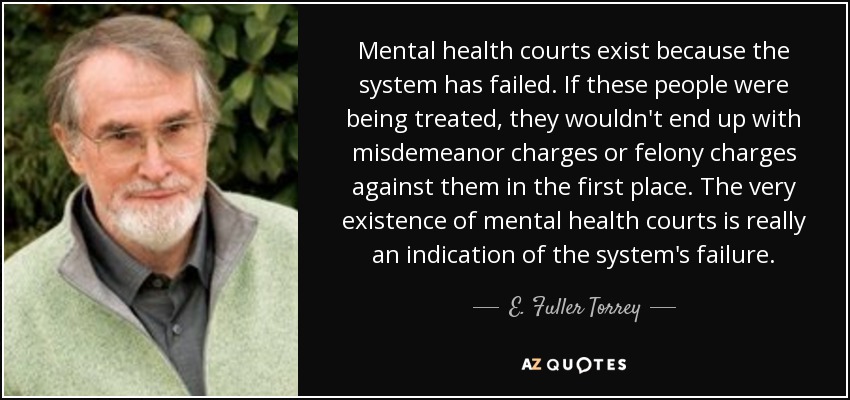
The Treatment Advocacy Center is my choice as the organization that had the most impact in mental health during 2015.
Each December, I look back to see what group or person made a difference in mental health matters. In 2014, I chose Rep. Tim Murphy, (R-Pa,) Virginia State Senator Creigh Deeds and Philanthropist Ted Stanley as key impact players.
Whether you agree or disagree with TAC’s actions — and it does have its distractors as well as its supporters — you have to acknowledge its national influence. Last Thursday, it released “Overlooked in the Undercounted: The Role of Mental Illness in Fatal Law Enforcement Encounters,” which reported that individuals with untreated mental illness were 16 times more likely to be killed during a police encounter than other Americans when dealing with law enforcement. That report was the latest in a series of TAC studies that have called attention to the plight of persons with mental illnesses. Consider these earlier studies:
“The Treatment of Persons with Mental Illness in Prisons and Jails: A State Survey” (April 2014)
“No Room at the Inn: Trends and Consequences of Closing Public Psychiatric Hospitals 2005-2010″ online (July 2012)
More Mentally Ill Persons Are in Jails and Prisons Than Hospitals (May 2010)
Problems Associated With Mentally Ill Individuals in Public Libraries (March/April 2009)
The Shortage of Public Hospital Beds for Mentally Ill Persons (March 2008)
Because TAC focuses on implementing Assisted Outpatient Treatment (AOT) laws, anti-AOT critics have accused it of releasing studies that buttress its call for greater use of AOT. That might be true, but it’s also true that TAC has consistently and unrelentingly revealed flaws in our system that need repair – and it’s done it louder and often more effectively than other advocacy organizations. (It’s also done it on a yearly budget of slightly more than $1 million — that’s not much in Washington’s advocacy circles.)
TAC’s fingerprints and those of its founder, Dr. E. Fuller Torrey, could be found all over the first draft of Rep. Tim Murphy’s Helping Families in Mental Health Crisis Act, so much so, that I once referred to Murphy’s bill as “Torrey’s revenge” against the Substance Abuse and Mental Health Services Administration (SAMHSA.) TAC’s former executive director Doris Fuller and current one, John Snook, were quoted extensively during 2015 in the media. Fuller’s poignant recounting of her ill daughter’s suicide first published in The Washington Post and later on this blog (Suicide: The Demons Got My Beautiful, Loving Daughter) reached more than a million readers.
Since its creation in 1998, TAC not only has pushed its self-described campaign “to reduce barriers to treatment,” it has helped set our national mental health agenda. Much of its influence comes from its 78 year-old indefatigable founder. Before Torrey turned his venom on SAMHSA, he issued two damning exposes about the National Institute of Mental Health. My favorite description of Torrey came from Laurie Flynn, a former director of the National Alliance on Mental Illness, who was quoted in a 2001 Washington Post profile written about Torrey.
“Ten years ago, we (NAMI) were outside the door pounding to get in,” Flynn said. “Now we’re at the table and people expect us to have good manners. But Fuller is still — and always will be — outside the door, pounding to get in.”
As I noted at the beginning of this blog, TAC and Torrey have detractors, including the Bazelon Center for Mental Health Law and consumer and disability rights groups, but even their opponents would find it difficult to question the influence that TAC and Torrey had during 2015 — and will continue to have.



